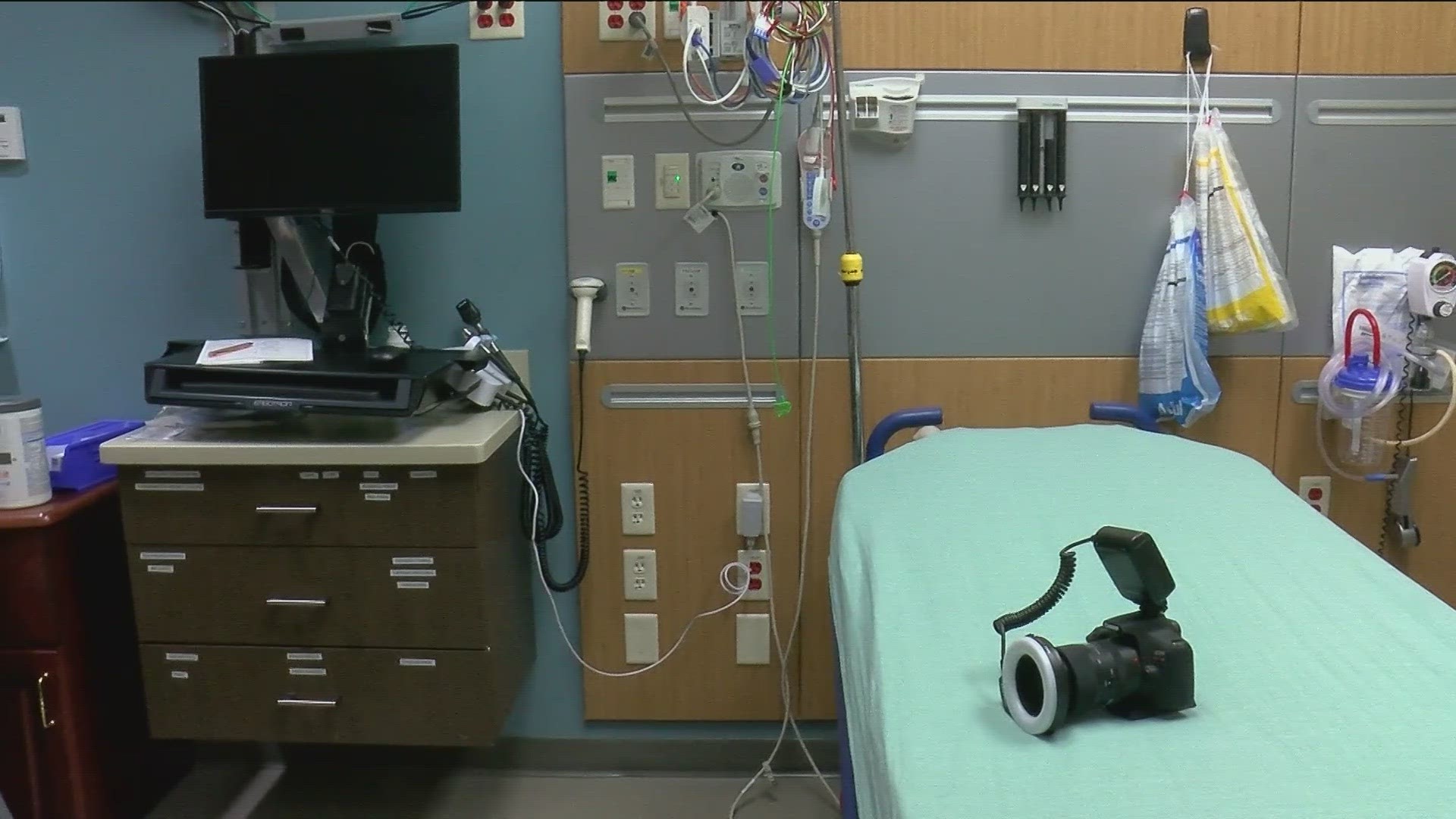TOLEDO, Ohio — State Rep. Michele Grim (D-Toledo) is working with doctors and nurses to find funding that will help sexual assault survivors after they're treated at the hospital.
She has submitted a state budget amendment that would establish a survivor's right to know the status of their sexual assault forensic exam, "an invasive exam that can last between four and six hours, and when it's over, the doctor collects the evidence in what we call a rape kit," Grim said.
The amendment would give survivors a right to know the status of their exam kit before and after results come in, something advocates said is rare in Ohio.
"Imagine you're in the hospital and you're going through a forensic exam," Rachael Gardner, director of victim services at social services organization YWCA, said. "At some point, the police will pick it up. At some point, it will go to the crime lab. At some point, it will be tested. That is a lot of 'at some point' for someone whose life has been turned upside down."
The amendment would also require an annual statewide audit of rape kits. Mercy Health forensic nurse Amber Showman said this could prevent testing backlog.
"I just spoke to a patient that I did an exam on about six years ago and they were frustrated because they had never heard back about their kit," Showman said. "It may have been tested but no one ever got back to them, and they had no way to track it. Patients need that for closure purposes," said Showman.
While discussing advancements for sexual assault survivors, Showman outlined the process of reporting assault in a hospital.
"Many people assume it's like the movies but it's not like CSI. It's not as scary as what you would see on TV," said Showman.
Showman has even gone out into the community to spread awareness on the rape kits.
"Sharing awareness on the exam can help people understand the process. One thing that someone may not know is that the initial part of the exam does not require a full explanation or in-depth details of your assault," said Showman.
Showman said an examination should not be rushed and every patient should be consulted with care and comforted. This is why an exam could take up to 6 hours.
While systems that better accommodate survivors are pursued, advocates said it's important that survivors know they have a community that's ready to speak up for their rights.
"There is a community available. There are services available. There is hope available. There's healing available," Gardner said. "It can be a long journey, but the arc is toward healing and justice."

